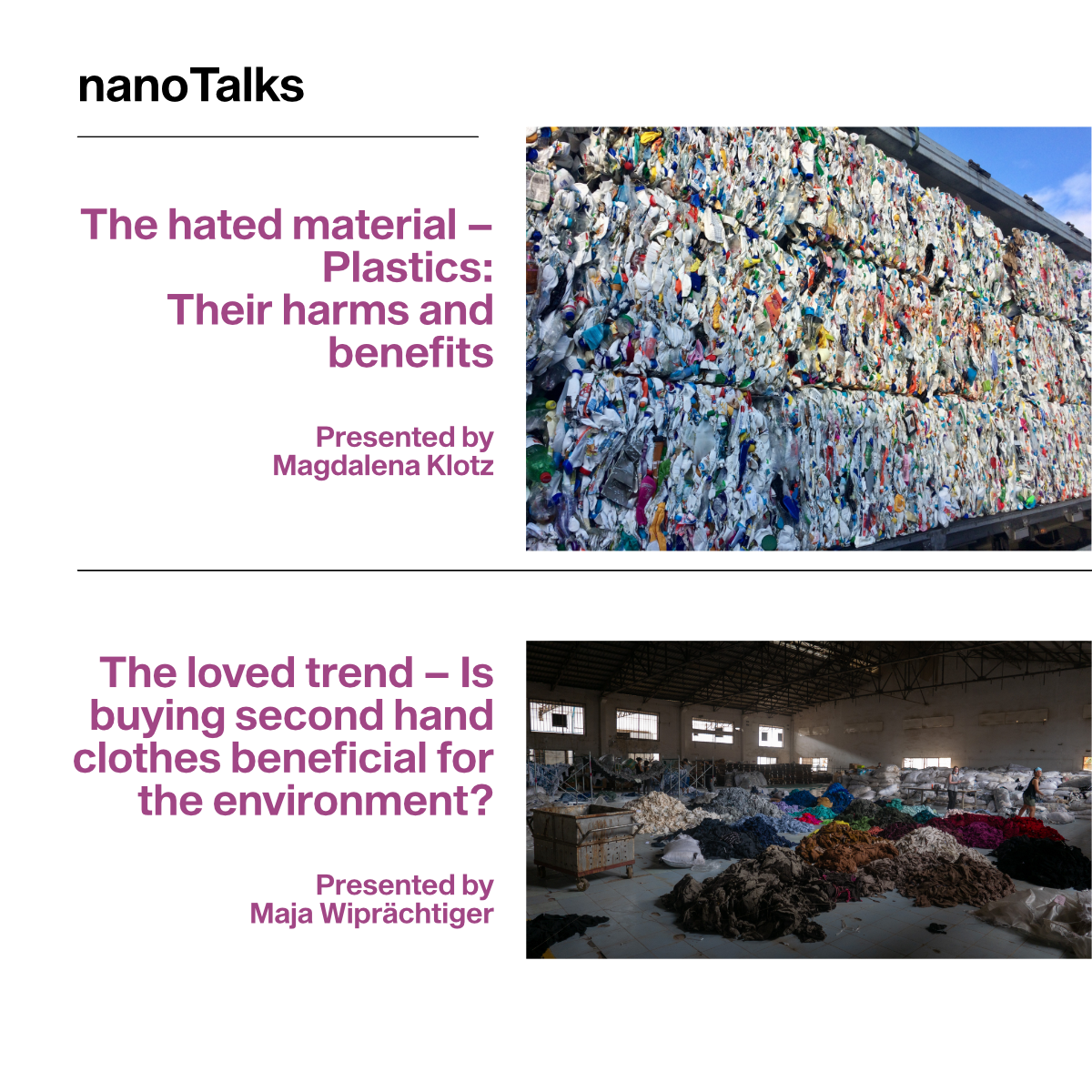
June nanoTalks: Sustainability
Join our nanoTalks about sustainability topics in June! With us, you will learn whether second-hand clothes are really the solution to reducing the environmental impact of the textile industry and gain scientific insights into the causes and extent of relevant environmental pollution caused by plastics.

Free
Talk 1: The hated material – Plastics: Their harms and benefits
Presented by Magdalena Klotz, PhD Candidate at the Institute of Environmental Engineering, ETH Zurich
Plastics are ubiquitous in our modern world. Their negative environmental impacts are strongly perceived by consumers, who worry about plastics in the ocean and the consumption of fossil resources. However, consumers are often not aware of the cause-effect chains leading to these impacts, or their relation to the consequences of other human activities, nor the conveniences plastics offer to them. Plastics production and waste incineration contribute to climate change. Plastics reach into the environment as complete products or as microplastics, with partly harmful, partly unassessed consequences. The chemical substances used in plastics may cause health effects and are mostly not well studied. In contrast, plastics provide design flexibility, prolong the storage time of food items and reduce greenhouse gas emissions at transport. This talk will give scientific insights into the roots and extent of relevant environmental impacts caused by plastics, and show in which ways plastics benefit our lives and the environment.
Talk 2: The loved trend – Is buying second hand clothes beneficial for the environment?
Presented by Maja Wiprächtiger, PhD Candidate at the Institute of Environmental Engineering, ETH Zurich
People are obsessed with clothes and fashion. Over the last decades, clothing purchases have increased, while the lifetime of garments has drastically decreased, leading to an ever-growing garment turnover. The environmental impacts caused by the textile industry are severe. The textile industry is responsible for large amounts of oil consumption, emits 1.2 billion tonnes of CO2 annually, and contributes significantly to microplastics pollution. To combat the environmental impacts of clothing production, initiatives such as bring-back opportunities at large retailers, secondhand shops, and repair cafés were launched. Especially secondhand or vintage clothes have gained the favor of younger, environmentally conscious people. But are secondhand clothes really the solution to reduce the environmental impacts from the textile industry? This talk will discuss the environmental consequences of buying secondhand clothes and elaborate on other options for reducing our environmental impacts regarding clothes.
